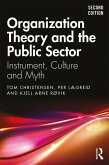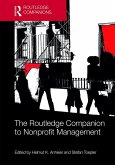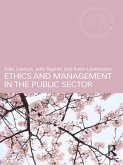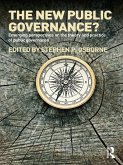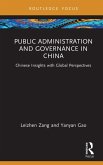Drawing on both instrumental and institutional perspectives within organization theory, as well as democratic theory and empirical studies of decision-making, the book addresses five central aspects of the public-sector organization:
¿ goals, values and motivation
¿ leadership and steering
¿ reform and change
¿ effects, learning and implications
¿ understanding and design
The book challenges conventional economic analysis of the public sector, arguing instead for a political-democratic approach and a new prescriptive organization theory. A rich resource of both theory and practice, Organization Theory and the Public Sector: Instrument, Culture and Myth is essential reading for anybody studying the public sector.
This second edition of the book contains a range of new and updated themes, examples and references.
Dieser Download kann aus rechtlichen Gründen nur mit Rechnungsadresse in A, B, BG, CY, CZ, D, DK, EW, E, FIN, F, GR, HR, H, IRL, I, LT, L, LR, M, NL, PL, P, R, S, SLO, SK ausgeliefert werden.
Professor B. Guy Peters, Maurice Falk Professor of American Government, University of Pittsburgh
"Christensen, Lægreid and Røvik convincingly demonstrate that insights from organization theories provide an indispensable basis for understanding the complex organization of states. Furthermore, by their rich analysis of problems, dilemmas and solutions in public organizations, they illustrate that the study of state organization is vital for developing organization theory."
Professor Nils Brunsson, Professor of Management, Uppsala University and Score
"Complex societies require a complex set of organizations. This book unpacks the complexity and hybridity of organizations by looking at their instrumental, cultural, and mythical side. When public sector organizations become part of societal solutions, this book becomes part of how to understand and develop organizations that will solve our problems."
Professor Geert Bouckaert, KU Leuven Public Governance Institute



